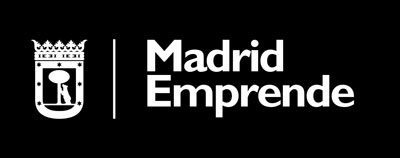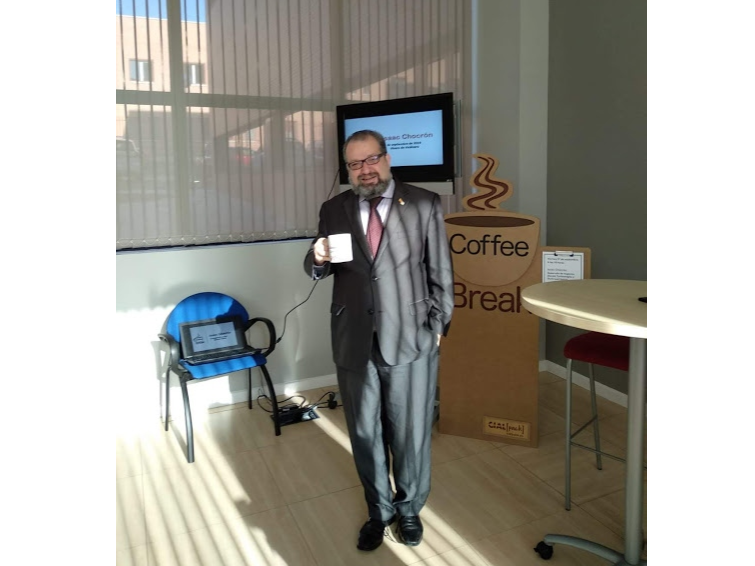Isaac Chocron created in Venezuela, in the last decade, the company Advantel communications AC dedicated to the design, installation and maintenance of communication centers and security systems. Among his clients were important companies such as the Meliá hotels and Empresas Polar and other multinational companies.
A few years later, in the Dominican Republic, he was founder and president of Security Shadow Tech For 3 years, supplier and contractor company for Claró, one of the leading companies in the telecommunications market in Latin America.
He is currently director of business development at Excem Technologies and of OurCrowd Iberia. Sephardic of Israeli origin, he is a prominent professional in the area of ICT, innovation and entrepreneurship. He has more than 26 years of experience in the sector. Throughout his career he has held various positions of responsibility in the areas of executive vice president, marketing, technology management and operations, both for others and as a self-employed person.
He has been in Spain for more than 11 years, which he has dedicated to connecting the Israeli ecosystem of entrepreneurship and innovation with the Spanish one at the government, institutional, and sectoral levels (clusters) and business, supporting high-potential companies in scaling, and as a freelance manager of investment analysis in high-potential Spanish companies that develop cutting-edge technology (deep tech), and that fit the Israeli investment criteria.
One of the key points in his presentation was: "we must be clear about the difference between SMEs and startup«
- SME is creating a company
- «There is no exact concept of startup«
- The benefit in SMEs is the EBITDA
- In the startup The objective is to sell the company
- The acceleration of creation of a startup It is faster than that of any company
- In the startup the benefit is the multiplication of the same EBITDA
- Investors in startup They only seek success
This difference will determine strategic decisions such as the following: where to go and where not to go?
- The only way for someone to invest in a startup is to multiply its value in success
- Only high potential companies
Another important fact regarding the startup was the following approach: what does success depend on? According to Isaac, to do this it is necessary to multiply the EBITDA by 5 or 10.
There are always two important components in multiplication: users and disruptive, innovative technology, disruptive and innovative business model. He also pointed out that in Spain success does not depend on investment rounds but on other parameters. In Spain there is more multiplier potential than, for example, in Silicon Valley or Israel. In Spain the first round starts with 50 to 100 thousand euros.
If you want to enter a startup It is necessary to determine the possible sales objective. To do this, you must be clear about how investment rounds work: first round business angel 100k, second venture capital 1 million, third round venture capital 5 million.
He also gave us some important tips during his presentation such as the following:
- To scale it is necessary to value the company, that is why in the first steps it is important to scale
- from one million onwards a company is attractive to international investors
- To arrive at the right strategy, clearly define the road map
That is why the investment rounds are scaled, the final valuation occurs when the company has effectively demonstrated its exit potential.
In both companies and startups, it is necessary: one, to detect a deficiency and two, that there are users for the deficiency.
What is necessary is to minimize the perception of investment risk. When they reach the investor, it is necessary to give the impression that the investment risk is low and that the return is high, in the words of the speaker "to demonstrate that the risk of the project is minimized compared to the others available."
The route or road map It is very important, but it is also important to prove that the team is correct.
There are sectors that are more “fashionable” for investors such as Deep take, food take, or those with disruptive technology, car safety, digital health... if we are not in those sectors and need investment, it would be interesting to pivot to them.
When creating companies you also have to map potential investors, in Spain there are 15,000 investors in the initial phase, 3 investors for each startup, there are many associations of business.
Furthermore, project validation is important (due diligence is essential) and that minimizes investment risk. The international investor does not pay so much attention to the metric, he pays attention to how the technology arrives and how much can be billed with the technology. Knowing how many users it has is important to know if it fits in the market or not.
The Spanish investor is not professional, the Spanish ecosystem is relatively new, no more than five years old and has not had time to become professional. They are unprofessional investors in valuation. The associations of business angel Local ones look for metrics, international ones look for a mix between association potential and metrics.
At the end, we shared a coffee with the attendees, in which communication took place between the attendees and the speaker and the entrepreneurs among themselves.
To attend the Coffee break or other events that we organize in the Madrid Emprende nursery network, do not forget subscribe to our activity newsletter or consult our schedule.

